by Donald J. Albers and Constance Reid
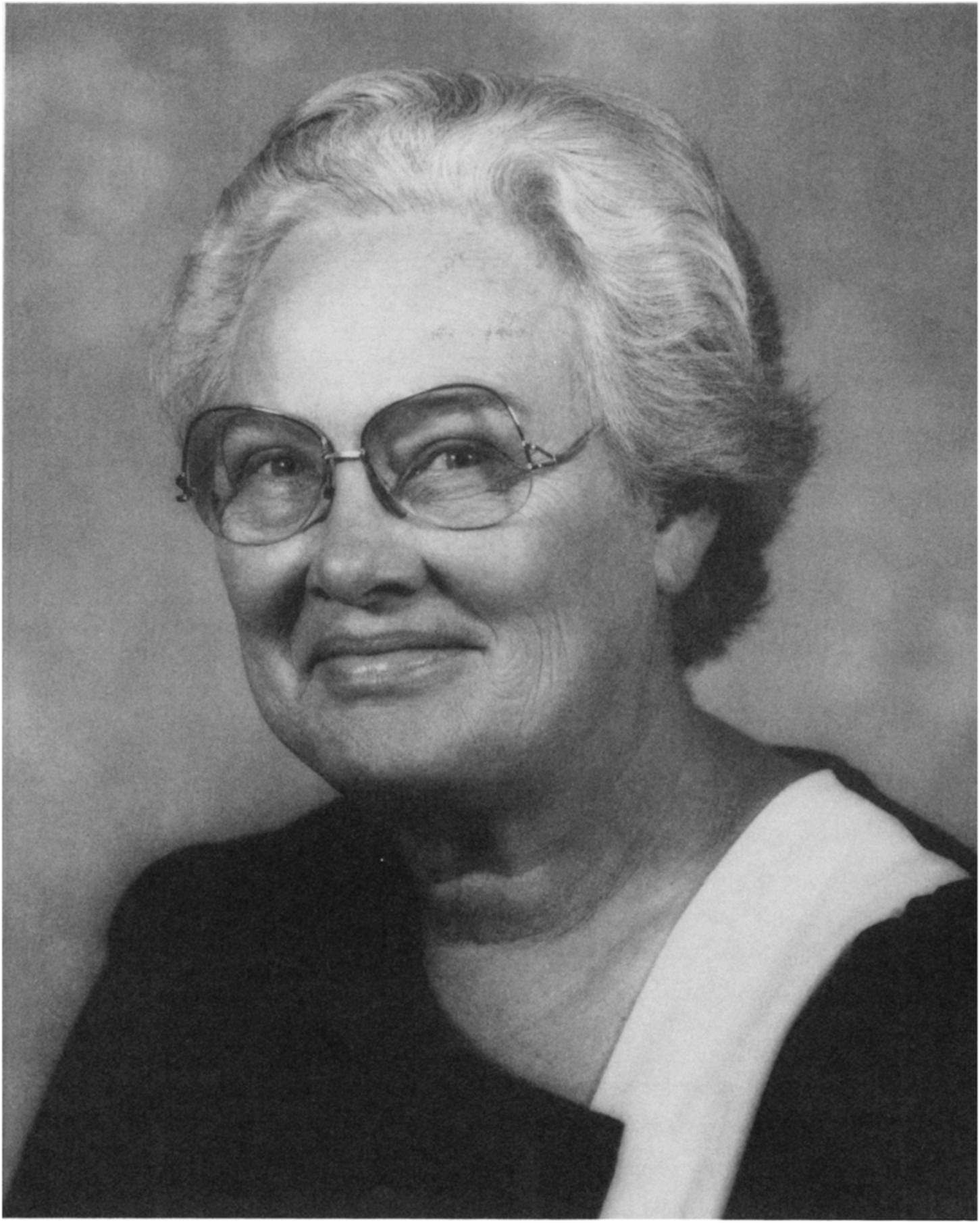
Mary Ellen Rudin is now the first occupant of a chair endowed in honor of the pioneering English mathematician Grace Chisholm Young, and one of the most respected workers in set theoretic topology, but for many years she had “no real job” in academia — and like it that way, she says. She has a bibliography of some seventy research papers and says she likes best to do mathematics surrounded by her family, in the living room of her “very open” Frank Lloyd Wright house. She believes she might have followed any number of other interests if the legendary R. L. Moore had not signed her up for mathematics during freshman registration at the University of Texas: “I am a mathematician because R. L. Moore made me a mathematician.”
Mathematical People: Tell us something about Hillsboro, Texas, where you were born.
Rudin: I don’t know anything about Hillsboro, Texas. I lived there only two weeks. My father was a civil engineer. He worked for the State Highway Department so home would change as the projects that he was working on changed. He was building something in Hillsboro. He was there for a brief period of time and probably stayed an extra week or two, maybe an extra six months, because I was about to be born; but as soon as I was born, we moved on to the next project in a different town.
MP: You mentioned something to us earlier about growing up in primitive conditions. Were you actually living where he was working — in construction camps?
Rudin: No. We always lived in towns near where he was working. When I said primitive conditions, I was referring to the fact that when I was about six he was sent to a little town in southwest Texas called Leakey — spelled just like the name of the anthropologist, and actually it is his family for whom the town is named. It is in the hills of southwest Texas. It is about 3000 feet high in the canyon formed by the Frio river with mountains on all sides. In those days you entered the town by going fifty miles up a dirt road — you had to ford the river seven times to get there. It was the county seat, but to get to the other town in the county, which was over a mountain, you had to go back out the fifty miles and take a different road up a different canyon. My father was there to build a new road, but the Depression hit and the State Highway Department never completed the road while we lived there.
MP: So was your father out of a job?
Rudin: No. He bought land for the road, he surveyed for the road, he made plans for the road, but they never got the money to build the road. He stayed there for a long time. I had almost all my growing up in this little town in southwest Texas. It was a real mountain community. Many kids came to school on horseback. We had a well and an electric pump, which gave us running water; but most people didn’t have running water or any of the things that you think of as being perfectly standard. Yet it was wonderful. There were miles of wild country and beautiful trees along the river. Everywhere there was a beautiful view.
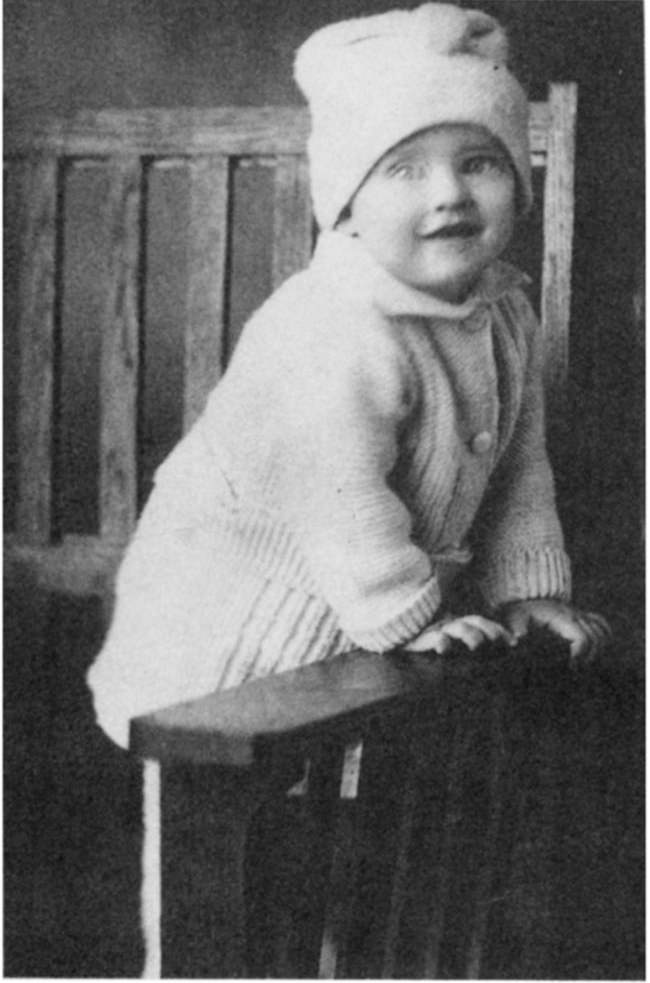
MP: What did your mother think about living there?
Rudin: She was a little shocked at first, I think, but she learned to enjoy it.
MP: Where had she come from?
Rudin: She had come from a town in the foothills of the Allegheny mountains, which she thought of as the center of culture and education. Both my grandmothers grew up in this same town, and they both went to college there.
MP: Both grandmothers?
Rudin: Yes. The town was Winchester, Tennessee, and a college there for women had been founded just at the close of the Civil War.
MP: What was the name of it?
Rudin: It was, let me see — Mary Sharp College. It was a real college for women. They had art and music and things like that, but they also had philosophy and mathematics and so on. It was quite unusual at that time and in that part of the world to have a college for women that wasn’t just a finishing school. My paternal grandmother, who was born in 1852, attended this college and was very good at mathematics. She was proud of that. My other grandmother was not so particularly good at mathematics. At least she didn’t brag about it later in life.
MP: Did your grandmothers teach after they graduated?
Rudin: No. They both married quite young and both had families — one had eight children and the other had six. But they valued education tremendously and always talked about their own educations. They educated their daughters as well as their sons and saw to it that all their children had some kind of advanced education. By the time my mother came along, this same little town had a coeducational school called Winchester Normal, and she attended that. Then she went to Peabody in Nashville, which was a teachers’ college, and took some courses at Vanderbilt, too.
MP: What was your mother’s maiden name?
Rudin: Irene Shook. It’s Dutch, but I don’t think it was spelled that way when it was Dutch. My father was Joe Jefferson Estill. The name is French, but it wasn’t spelled that way when it was French either. They were both descended from people who came to the United States long before it was the United States; that is, in the early 1700’s. They came over the mountains from Virginia and settled in the valleys of Tennessee. My father’s family were mostly lawyers and doctors, but the story is that they made at least part of their living playing cards. My mother’s people were farmers primarily.
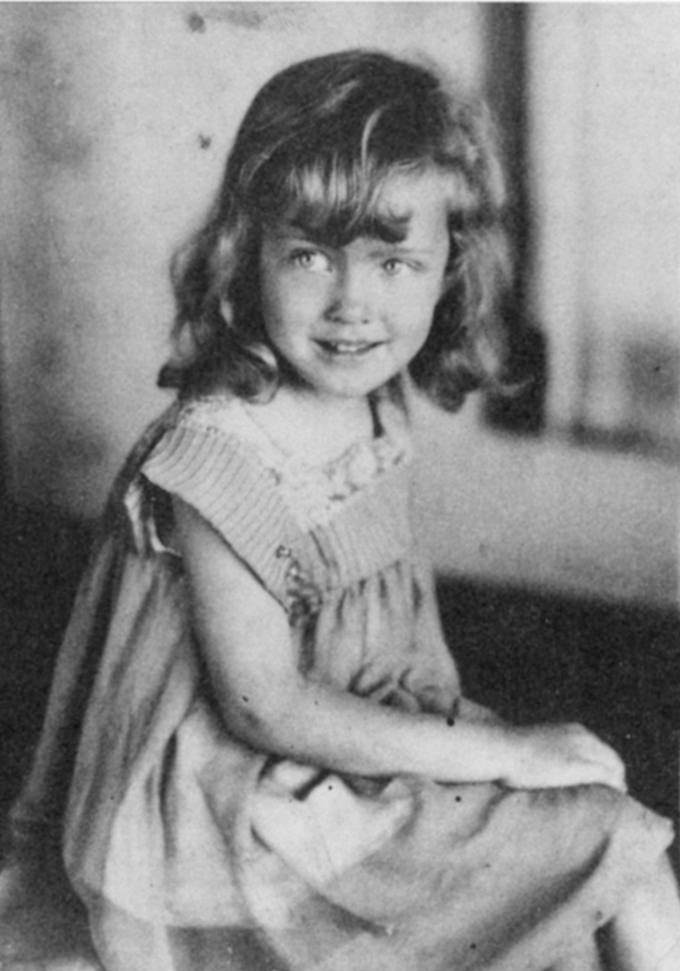
MP: Were you an only child?
Rudin: Yes. No.
MP: Now wait a minute!
Rudin: I was an only child of two. I am ten years older than my brother so I was raised in a way as an only child. When I left home, he was ready to enter first grade. I love him dearly — we are very close friends — but he’s more like a nephew or a son than a brother.
MP: Tell us about the schooling you received in Leakey.
Rudin: It was a very simple community. Nobody had any money at all. We were rich because we had a regular salary coming in. But the principal object that existed in the town was the school, and it was a very good school. I was definitely not the best student in my class. There were five of us who graduated, and there was one girl who was much smarter than I. There was another very bright kid. I was maybe third out of five. I went to the university thinking that I would make C’s but I made A’s without any trouble.
MP: How do you account for the fact that the school was so good in such a little town?
Rudin: Many of the teachers were the children of ranchers who lived there, and they had come back home to teach. The number of jobs available in the world at that time was limited. I suspect that they would have had other opportunities in another time and place. But the community valued education.
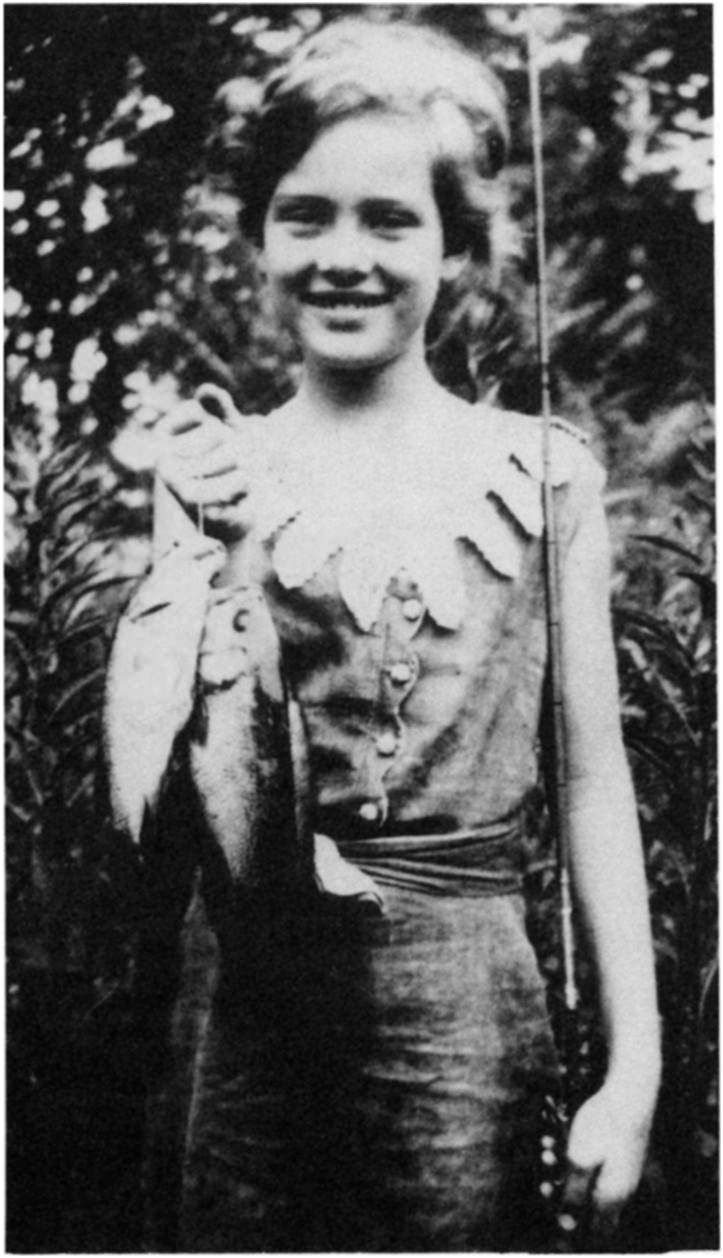
MP: It would be interesting to track the children from that community over time to see if the education really has paid off.
Rudin: Elton Lacey, who is chairman of the math department at Texas A. & M., also grew up in that same little community. We had a very good school, and there were some very bright kids. We also had a lot of time to develop games. We had few toys. There was no movie house in town. We listened to things on the radio. That was our only contact with the outside world. But our games were very elaborate and purely in the imagination. I think actually that that is something that contributes to making a mathematician — having some time to think and being in the habit of imagining all sorts of complicated things. We thought of wherever we were as some wonderful land. And this is my house and this tree is a castle and that’s whatever, depending on whether we were wanting to be Hollywood stars or whether we were wanting to be in antiquity. The number of books we had to read was fairly limited. We had more books at home than there were in the school library. All my friends read the books in our house, too.
Although I came from a group of people who were educated and who valued education tremendously, I grew up in very primitive, simple surroundings where I had lots of time just to think. But there was never any question about the fact that I would go to the university and that I would do something with my education. My mother had been a teacher before she married. She expected that I should earn my living and that what I did should be an interesting thing to do.
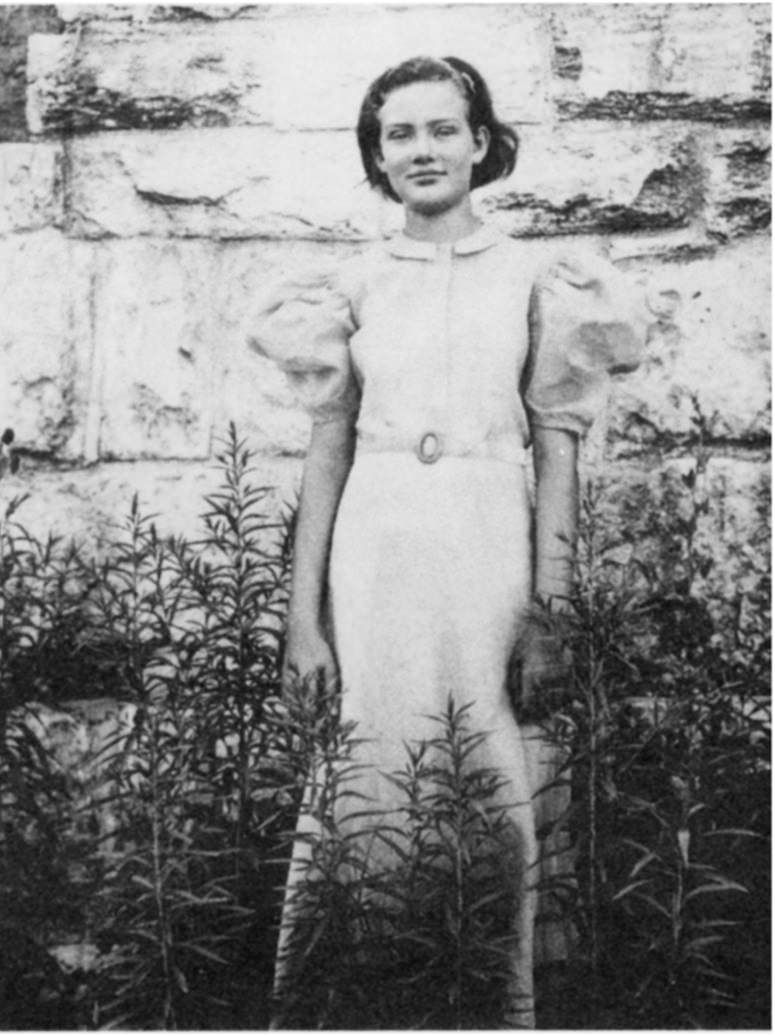
MP: What interested you most in school at that time?
Rudin: I enjoyed school, but it isn’t clear to me that I was interested in one particular thing or that one thing interested me more than the others. I liked school as much for my friends and for talking with my friends about the ideas we found there as for school itself. I certainly didn’t like school to the exclusion of play.
MP: You sound like a normal kid.
Rudin: Yes. I was a perfectly normal average kid.
MP: How did you happen to go to the University of Texas?
Rudin: Well, my father had gone there. He considered it a first class place.
MP: When you set off for the University, did you have in mind a special subject that you wanted to study?
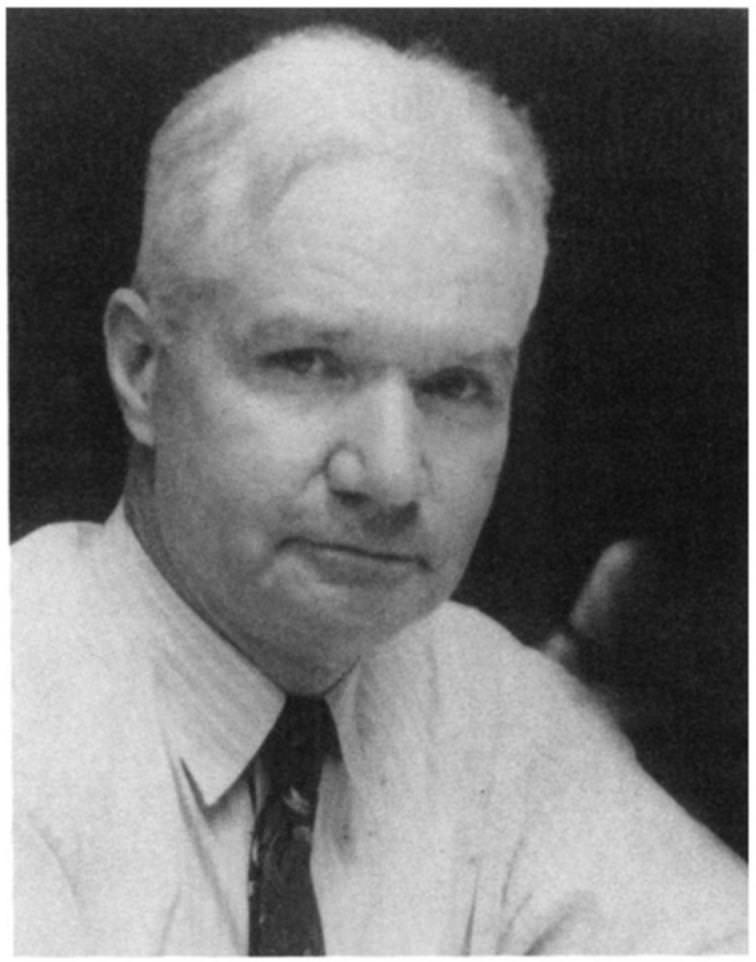
Rudin: Oh, absolutely not! My father went along with me because he had an old girlfriend who taught English there and he wanted to talk to her about what I should take. They both felt that I should take just a perfectly general liberal arts course, partly to find out what I was interested in and partly because they both believed very strongly — and my mother certainly felt that way too — that one should be educated in the sense of having a broad education. So on the appropriate morning I went to the gymnasium to register for the things they had decided on. There was a mass of people, but there were very few people at the mathematics table so I was sent over there. The man who was sitting at the table was an old white-haired gentleman. He and I discussed all kinds of things for a long time. I now know the kinds of things that he must have asked me. There would have been lots of sentences with if and then. I used if and then correctly. I also used and and or correctly from a mathematician’s standpoint. At the end of our conversation he signed me up for the courses that I had written on my little slip of paper. When I went to my math class the next day, I found that the professor was R. L. Moore — the same man who had talked to me at the registration table.
MP: You met him literally on your first day on campus?
Rudin: On literally my first day on campus I met R. L. Moore. And literally on my first day I was selected by him.
MP: How large was the University at that time?
Rudin: Eleven thousand students.
MP: That’s still rather large for him to be sitting there in the gym and evaluating individual freshmen.
Rudin: He always did that. He was looking for students.
MP: Well, he got you.
Rudin: Yes. There was no one else in that first math class who was at all bright so far as I could tell.
MP: What kind of class was it?
Rudin: It was a trig class. The next semester I took analytic geometry, and R. L. Moore taught it. The next semester I took calculus, and R. L. Moore taught it. It never occurred to me that that was really peculiar. I was not very smart! But I was fully aware that in some way he was teaching for my benefit. He would call on other people first and let them fall on their faces. Then he would have me solve the problem for them. I was always the last person he would call on.
MP: Did this involve going up to the board?
Rudin: Yes. Everything was set up on the basis of proving theorems from axioms. It never occurred to me that there was any other kind of mathematics. At the end of the calculus course, for instance, I’m not sure I knew that the derivative of \( \sin x \) was \( \cos x \). But I could prove all sorts of theorems about continuity and differentiability and so on!
MP: In other words, you were getting an introductory analysis course.
Rudin: Exactly. And it was a first-rate course in introductory analysis. But it wasn’t until I taught calculus myself that I learned all those formulas. Now I find it really incredible!
MP: So, after Moore lassoed you, you immediately zeroed in on math?
Rudin: Oh no! I found the whole University just fascinating. There was that rare books library that had everything in the world in it, and I loved to go there. I loved the history courses. I loved the English courses. I enjoyed physics very much. I took a lot of philosophy. Even in my senior year I took courses all over the map — almost as much philosophy as mathematics, almost as much history as mathematics, almost as much English as mathematics, almost as much Spanish as mathematics. I was equally good, as far as I could tell, in all these subjects. Even though I was having this special coaching, you might say, in math, it was still just one of many things I was taking. When I was a senior, I went to the vocational guidance office and said, “I have just taken a broad general course, and now I feel I should be specializing in something. I clearly need some advice.” They gave me a whole battery of tests. Afterwards they said, “You’re kidding! You don’t know you’re good in mathematics?” I said, “I know I’m good in mathematics, but I can do other things too. I don’t want to teach high school,” which was really the only thing that occurred to me that one could do with mathematics. They said, “Just relax. They’ll invite you to stay and go to graduate school.” And indeed within a week (I almost suspected that they had called the math department) I was offered an instructorship. So I stayed and went to graduate school. I am sure Moore would have caught me anyway. He knew exactly what he was going to do with me. He just hadn’t told me yet.
MP: Did you have any mathematics teachers besides Moore?
Rudin: Well, yes, but not until my senior year. Then I had a course in algebra from somebody else and a course in differential equations from somebody else.
MP: So you had a course from Moore every semester?
Rudin: Every single semester during my entire career at the University of Texas. I’m a mathematician because Moore caught me and demanded that I become a mathematician. He schooled me and pushed me at just the right rate. He always looked for people who had not been influenced by other mathematical experiences, and he caught me before I had been subjected to influence of any kind. I was pure, unadulterated. He almost never got anybody like that.
MP: You are a child of Moore.
Rudin: I’m a child of Moore. I was always conscious of being maneuvered by him. I hated being maneuvered. But part of his technique of teaching was to build your ability to withstand pressure from outside — pressure to give up mathematical research, pressure to change mathematical fields, pressure to achieve non-mathematical goals. So he maneuvered you in order to build your ego. He built your confidence that you could do anything. No matter what mathematical problem you were faced with, you could do it. I have that total confidence to this day.
MP: You really feel that?
Rudin: You give me the definitions, and I’ll solve the problem. I’m a problem solver, primarily a counterexample discoverer. Part of that is a Moore thing, too. That is, he didn’t always give us correct theorems, at least half of his statements were false. So we had to think about them as a research mathematician might. I still have this feeling that if a problem can be stated in a simple form that I can really understand, then I should be able to solve it even if doing so involves building some complicated structure. Of course, I have had some failures. You can guess how often.
MP: But you’ve never failed in confidence?
Rudin: No, having failed 5,000 times doesn’t seem to make me any less confident. At least I don’t feel bound by any serious constraints or doubts about my ability.
MP: Tell us a little more about your graduate school experience.
Rudin: I had entered the University in 1941. That was the beginning of the war for the United States, and all Moore’s students went off to war except Bing, who had an old injury which didn’t allow him to go. Because of the speeded up wartime schedule, I had just three years as an undergraduate, but graduate school for me was fantastic. I started in December 1944, and by September 1945 the war was over and the men were back. So I started with R. D. Anderson, R. H. Bing, Ed Moise, and Ed Burgess. There were five of us.
MP: That’s quite a collection!
Rudin: We were a fantastic class. Each of us could eat the others up. Moore did this to you. He somehow built up your ego and your competitiveness. He was tremendously successful in that, partly because he selected people who naturally had those qualities he valued. He immediately separated Moise and Bing, who were further along than the rest of us. But still we were really together, and we have all been very close to each other for our entire careers. That is, we were a team. We were a team against Moore and we were a team against each other, but at the same time we were a team for each other. It was a very close family type of relationship. Actually in our group there was another, a sixth, whom we killed off right away. He was a very smart guy — I think he went into computer science eventually — but he wasn’t strong enough to compete with the rest of us. Moore always began with him and then let one of us show him how to solve the problem correctly. And, boy, did this work badly for him! It builds your ego to be able to do a problem when someone else can’t, but it destroys that person’s ego. I never liked that feature of Moore’s classes. Yet I participated in it.
MP: Did it happen often?
Rudin: Very often in the undergraduate classes. I mean, I was the killer. He used me that way, and I was conscious of being used that way.
MP: You were Moore’s only woman student?
Rudin: Moore had several women students after me, and he had had two women students previously. The first, Anna Mullikin, wrote a fantastic thesis at Pennsylvania and then immediately went off to China as a missionary. The next was Harlan Miller. She later taught at Texas Women’s College and was very influential as a teacher and an administrator, but she never did any research mathematics after her thesis. He was tremendously disappointed in both of these women.
MP: How did Moore conduct a graduate class?
MP: He must have had some male failures, too.
Rudin: Oh, he had plenty of male failures. There’s no question.
MP: You were saying that you would talk about things other than mathematics in class. What sort of things?
Rudin: Moore would come in and stand at the board and sort of start the conversation. “Miss Estill, do you have anything to report today?” “Mr. Anderson, what do you have to say?” There were maybe three people in the class, always a small group.
MP: So if nobody had anything to report?
Rudin: Then we would start discussing something — it could be politics or anything. Ed Burgess, for instance, remembers the following incident, which I don’t remember at all. We were discussing locking doors. I said that I would never lock the door to my house unless my husband insisted. Ed says that Moore literally pounced on that, saying, “Husband! But, Miss Estill, I thought that you were going to be a mathematician.” Moore intended to elicit a response from me; but although he may have had his doubts, I never saw any contradiction in being both a housewife and a mathematicians — of the two I was more driven to be a housewife. Now I don’t remember this particular incident, but I do remember that locking doors was a subject that we often discussed.
MP: Was there much interaction among the Moore students outside the classroom?
Rudin: Very little. We went our own ways and did our own things.
MP: Were there any social things with Moore and his wife?
Rudin: Once in a blue moon there would be something social, but Mrs. Moore didn’t do social things very easily and maybe he didn’t either. Actually there weren’t a lot of social things in mathematics at the University of Texas in those days.
MP: Tell us about your thesis.
Rudin: It was one of Moore’s many unsolved problems. His technique was to feed all kinds of problems to us. He gave us lists of statements. Some were true, some were false, some he knew were true, some he knew were false, some were fairly easy to prove or disprove, others very hard. There would be all kinds of unsolved and solved problems in the same batch, and there was no way of distinguishing between them. We worked on whatever we jolly well pleased. I solved one of the unsolved problems. Actually I found a counterexample to a well-known conjecture. The technique I used is now called “Building a Pixley–Roy Space.” Two mathematicians named Pixley and Roy tried to read my thesis, which was written in Moore’s old-fashioned language and was not terribly well written besides, and gave a beautiful simplified description of the technique. At the time I wrote my thesis, I had never in my life seen a single mathematics paper!
MP: You had never read any mathematics papers?
Rudin: I told you that I was pure and unadulterated. I only knew the mathematics that Moore fed me. The mathematical language that he used was his own. I didn’t know the standard definition of compact; I didn’t know the correct definition of limit point. I didn’t know how mathematical words were used at all. Instead of open set, for instance, he used region. His language was completely different from the language of the mathematical literature. I didn’t know any other language.
MP: He told his students — at least so I have heard — “I don’t want you going to the library and reading papers.”
Rudin: I don’t remember ever being told that I shouldn’t read mathematical papers, but I was never tempted. It’s true, however, that he sometimes encouraged people to go out into the hall so that they would not hear a proof. I would not do such a thing. If somebody proved something first, he proved it first, and I would listen to it.
MP: Why do you think Moore did that?
Rudin: He wanted to build your independence.
MP: Whether the other person’s proof was right or wrong?
Rudin: Whether it was right or wrong. Of course if it was wrong, he’d be delighted to have you there because then you could discover that it was wrong.
MP: How would he know a proof was wrong in advance?
Rudin: First of all, he did have some inner sense. Second, he tried to get students to have the attitude that they didn’t want to listen to someone else’s proof. I rebelled against that, but there were people who did go out. I think that none of our group ever went out. That wasn’t our style. But when you read about Moore, you will read that he tried to get people to do that.
MP: He never referred in class to other people’s work?
Rudin: Never, never, never.
MP: You grew up in a strange world.
Rudin: In a strange, unreal world. Completely. I still dislike reading mathematical papers, and I learn any other way I possibly can. My first two or three papers were all written in Moore’s old-fashioned language.
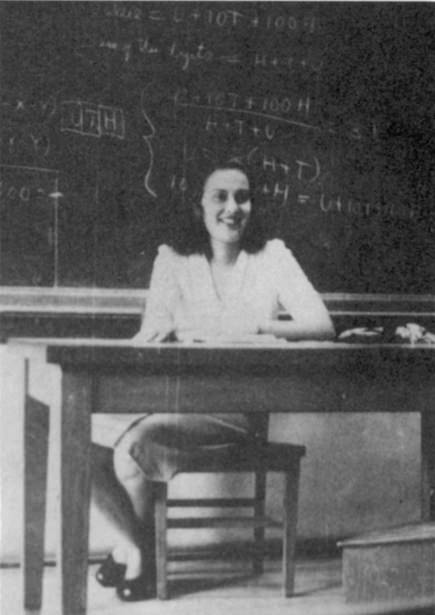
MP: How did you feel about your mathematical education later?
Rudin: I really resented it, I admit. I felt cheated because, although I had a Ph.D., I had never really been to graduate school. I hadn’t learned any of the things that people ordinarily learn when they go to graduate school. I didn’t know any algebra, literally none. I didn’t know any topology. I didn’t know any analysis — I didn’t even know what an analytic function was. I had had my confidence built, and my confidence was plenty strong. But when my students get their Ph.D.’s, they know everything I can get them to learn about what’s been done. Of course, they’re not always so confident as I was.
MP: Reading other people’s work is a great way to destroy one’s confidence.
Rudin: Maybe it is. At least that was Moore’s opinion.
MP: Weren’t there any departmental requirements at Texas? Any qualifying exams for the doctorate?
Rudin: He was the department. I took exams in philosophy, which was my graduate minor, but I never took an exam in mathematics in my life. Moore students were good in direct proportion to how fast they learned after they got out. I still feel seriously deprived by the shortage of the things I learned. I resent that, I guess, but at the same time I’m conscious of how much — well, I wouldn’t have been a mathematician at all if it hadn’t been for R. L. Moore.
MP: How about finding a position after you got your Ph.D.?
Rudin: Getting a position was just like going to graduate school. I never applied for one. Moore simply told me that I’d be going to Duke the next year. He and J. M. Thomas, who was a professor at Duke, had been on a train trip together. Duke had a women’s college which was sort of pressuring them to hire a woman mathematician. So Moore told Thomas, “I’ve got the very best, and I’ll ship her to you next September.”
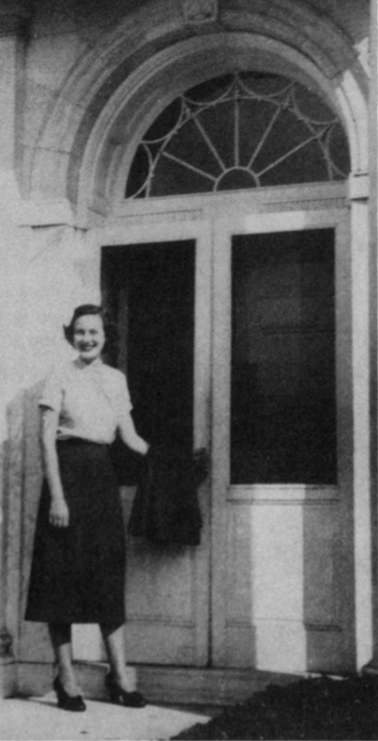
MP: What feelings toward Moore, as a person, did you develop over time?
Rudin: Oh, I had very warm, enthusiastic feelings for him, although I also had very negative feelings. I was conscious of both levels.
MP: And the negative ones?
Rudin: I was aware that he was bigoted — he was — but I also was aware that he played the role of a bigot sometimes in order to get our reactions, maybe even to keep us from being bigots. I’m never sure to what extent that was true. Moise, for instance, was a Jew. Moore always claimed that Jews were inferior. I was a woman. He always pointed out that his women students were inferior. Moise and I both loved him dearly, and we knew that he supported us fantastically and did not think that we were inferior — in fact, he thought that we were super special. On the other hand, he wanted us to be very confident of ourselves in what he undoubtedly viewed as a somewhat disadvantaged position. Now then, did he play the role of a bigot to elicit a response? I have no idea.
MP: His talking about his former women failures probably made you say to yourself, I’m not going to be one of those!”
Rudin: I can’t say that I really ever identified with them. Something else Moore built into all of us was our responsibility to be part of the mathematical community — to take part in the American Mathematical Society, very strongly, and to take part in The Mathematical Association of America even though it was not a research organization. He believed in going to meetings of professional organizations and participating in the meetings. That’s something that all of us have done more than our share of. Moore was president of the American Association for the Advancement of Science; and Moore, Whyburn, Wilder and Bing were all presidents of the AMS as well as colloquium lecturers for the AMS and members of the National Academy of Sciences. Wilder, Bing and Moise were MAA presidents. All of us have served on endless committees for these organization.
MP: What about editing?
Rudin: He believed very strongly in doing that, too.
MP: Even though he never read?
Rudin: Oh yes, he considered publication absolutely vital. We should publish and be very involved, even if we shouldn’t read too much about what other people were doing.
MP: But he sent you off to Duke never having read anything?
Rudin: Right.
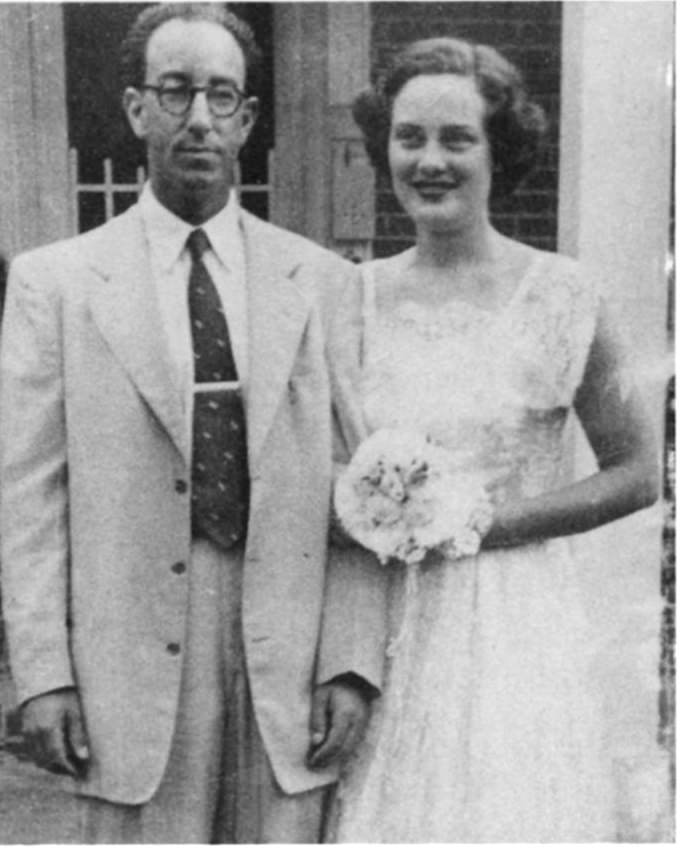
MP: At Duke was where you met Walter Rudin. Will you tell us a little about Walter?
Rudin: Walter had grown up in Vienna. He was part of an old Austrian Jewish family. His great grandfather, who was a philanthropist, had been knighted by Franz Josef. However, when the Germans came into Austria in 1938, the Austrians rejected their Jews, and Walter now totally rejects his Austrian background. His parents managed to send Walter and his sister to school in Switzerland. It was maybe six months before they themselves could leave Austria. They left without a thing except the clothes on their backs. They showed up in Switzerland thinking that they would live there forever, but it very soon became clear that that was not a possibility. So they moved on to France where they again expected to live forever. But then the French became very frightened about having so many German-speaking refugees in the country so they put Walter and his father in internment camps in different parts of France. Walter volunteered for the working corps in the French army. He was 19, I guess, and he was in the French army for about two weeks before the Germans came in. He was told by the French that he could just walk away. He got to England and spent the war years there. After the war he came to visit in this country, where his parents had managed to come. He went down to Duke to see his sister, who was in graduate school — she’s a chemist — and while he was there he talked to the people in the math department. He had never gone to college, but he persuaded them that maybe he could be a junior. Four years later he had a Ph.D. in mathematics. So we were both fresh young Ph.D.’s. We went together, but we didn’t — I think there were times during that year when I was interested in marrying Walter and there were times when he was interested in marrying me, but it was never at the same time. We were both just starting out in life.
MP: When did you and Walter get married?
Rudin: We got married in ’53. Walter was going to Rochester that year, and jobs were very scarce. During the time at Duke I had worked on problems related to Souslin’s conjecture and had constructed a lot of weird connected sets in the plane, one of which disapproved a conjecture of Wilder’s, so I was beginning to be reasonably well known. Wilder arranged for me to go to the University of Michigan. You see, he had applied for a grant for me. I hadn’t applied, he had applied.
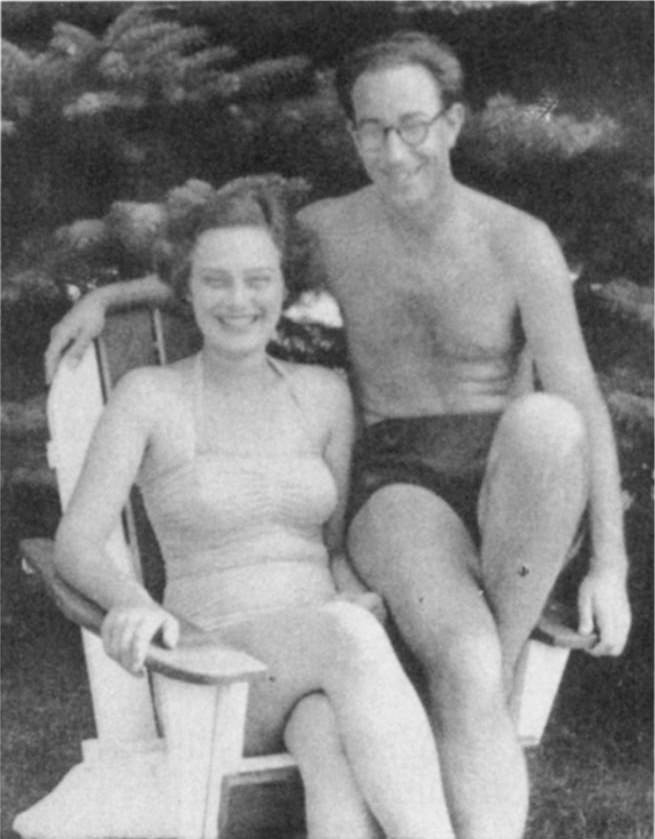
MP: So it was an extension of the Moore method by a Moore student?
Rudin Well, when Wilder wired that he had the money for me, I wired back, “I’m sorry but I’m getting married and going to Rochester.” And Wilder arranged for the grant to be transferred from Michigan to Rochester!
MP: The University of Texas took care of its own.
Rudin: I always had this built-in family that really took care of me. For instance, I gave colloquia at Virginia, where Whyburn was. It never occurred to me that it was slightly difficult to be a woman mathematician.
MP: But when you married, there was absolutely no guarantee that you would have anything to do at Rochester.
Rudin: No, but it absolutely never occurred to me to worry. I was married.
MP: Did you and Walter ever discuss the question of your career?
Rudin: No. Of course not. I didn’t know any couple that did. I didn’t even think of mathematics as a career. The University of Rochester hadn’t known I was coming with Walter, but they immediately gave me a calculus class to teach. So I taught. I had a private office. I didn’t really have a position, but — oh well, I was a temporary part-time something. And that’s the kind of job I have had almost all my life until 1971, when I became a full professor. I have had non-jobs wherever we happened to be, I loved my non-jobs. I always had all the goodies that go with being a mathematician. I had graduate students, I had seminars, I had colleagues who loved me. I never had committees. I never had a trigonometry class. I was always just asked, “Is there something you’d like to teach this semester?” And I would say, “I think I’ll teach a graduate course in — ” or maybe, “I think I’ll take this semester off.” I often had grant money. It didn’t make that much difference in my life though, since Walter always had a good job. But I was a mathematician, and I always thought of myself as a mathematician.
MP: And a mother.
Rudin: Oh yes. We had two babies in the first two years. So I was very busy and very happy as a mother and certainly expected to be a mother and wanted to be a mother very much.
MP: Did you have extra help with your children?
Rudin: At first, at Rochester and later at Yale, I had great responsibilities at home because I had friends rather than hired people helping me with my children. When we moved to Madison, however, I happened on an absolutely fantastic woman named Lila Hilgendorf. She had been the wife of a farmer and had had six children. She was wonderful with children.
MP: By this time you had your four?
Rudin: There were still just two; but from the beginning, after we moved to Madison, she came regularly to my house. She cared for the children and did some housecleaning. When I would walk into the house, she would walk out; and when I had to go, she was there. We had that relationship until she died this year. She was absolutely the best mother I ever saw, and my children just adored her. One thing that she did for me was absolutely fantastic. The first weekend after my retarded child was born, she said, “Oh, I just have to have him for the weekend!” And he went to her house for the weekend for the rest of her life. Actually he lived at her house the last several years. So when people ask how it is, in my position, to have four children, I have to say that when you’ve got Lila, it’s easy. I am afraid that few women will ever have such an easy, unpressured career as mine.
MP: You were, nevertheless, cranking out papers at quite a rate.
Rudin: Oh yes. Terrific. But I didn’t have to prove to anybody that I was a mathematician, and I didn’t have to do all the grungy things that you have to do in order to have a career as a mathematician. The pressure was entirely from within. I did lots of mathematics, but I did it because I wanted to do it and enjoyed doing it, not because it would further my career.
MP: A great reason.
Rudin: Then, when the time came that I was relatively free, it all of a sudden became possible for me to become a professor. I was instantly made a professor. I mean, the guilt feelings in the math department were such that nobody even asked me if I wanted to be a professor. I was simply presented with this full professorship. My first reaction was to say no, but Walter persuaded me that I should say yes. He said, “It’s insurance I can’t buy you. Why don’t you just ask for halftime?” So I had a full professorship halftime until I discovered that I was building no retirement. They multiply by half three times: half the number of hours, half the amount of salary, and half the years of service.
MP: An eighth.
Rudin: Precisely. The children were grown by then so I decided to teach full time, but I’d really like to go back to halftime. Teaching takes a lot of time; and even though I enjoy it and have had some wonderful graduate students, I think a halftime career is just great.
MP: Especially when you have a husband.
Rudin: It’s a function of having somebody to earn a living for you.
MP: You say that you enjoy teaching and you have had some great students. Do you use the Moore method of teaching?
Rudin: No. Not at all.
MP: Why not?
Rudin: I guess I don’t believe in it.
MP: What is your way of teaching?
Rudin: Oh, I’m a perfectly straightforward, enthusiastic lecturer.
MP: You bubble.
Rudin: I bubble, and I get students enthusiastic. I’m able to explain things. I’m a good lecturer, I think. I’ve never tried to use the Moore method — I guess because I got burned by having been a student under it. Bing, however, always used the Moore method. And there are other Moore students and students of Moore students, and so on, who have used it and used it very effectively — combining it with teaching students to read. Nobody ever does it Moore’s way. Fortunately. I do try, however, to give students interesting problems to work on.
MP: How do you find interesting problems?
Rudin: Oh it’s easy. There are a lot of interesting problems around.
MP: When you give a student a problem, have you more or less worked it out in your head?
Rudin: Sometimes.
MP: Pólya us that he never gave a student a dissertation problem unless he knew that it could be done. We pressed him. Did that mean that he had done it himself. He said, well, yes.
Rudin: Effectively. Yes. Of course, I have had students who don’t need any assistance of that kind. That’s the kind of student that a teacher loves to have. They teach you all kinds of things. You don’t teach them. But you also have students who need a particular problem, and you try to give it to them. My technique is not so much to have solved the problem completely as to have in mind two or three things that I think can be done and to have done enough thinking about them to see that they are not too difficult. I try to give my students two or three things to work on. I believe in working on several things at once, even though I find it difficult to do that myself. I really like to concentrate on one thing. That’s one of my worst flaws as a mathematician.
MP: Incidentally, how do you actually do mathematics?
Rudin: I lie on the sofa in the living room with my pencil and paper and think and draw little pictures and try this thing and that thing. I’m interested in how ideas fit together. Actually I’m very geometric in my thinking. I’m not good at numbers at all. Although I do like combinatorics, I’m not really interested in numbers. Walter says that I think one number is just like any other number.
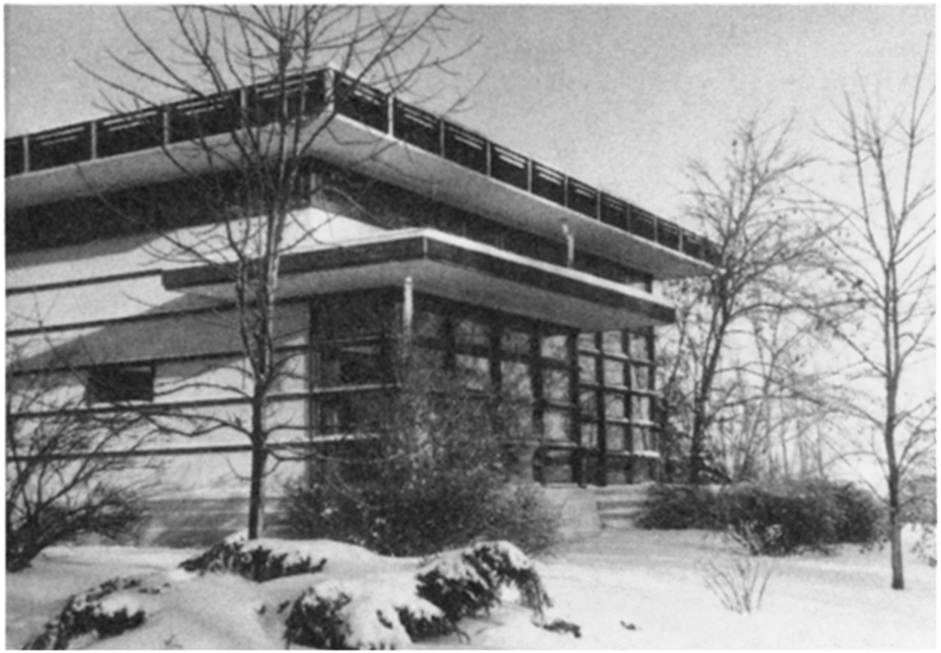
MP: So you do mathematics lying on the couch in the living room of your Frank Lloyd Wright house?
Rudin: Yes. It’s a very easy house to work in. It has a living room two stories high, and everything else sort of opens onto that. It actually suits the way I’ve always handled the household. I have never minded doing mathematics lying on the sofa in the middle of the living room with the children climbing all over me. I like to know, even when I am working on mathematics, what is going on. I like to be in the center of things so the house lends itself perfectly to my mathematics.
MP: What about Walter and his mathematics?
Rudin: He likes more privacy. We have a study that is quite private, and that is Walter’s study. My study is in the middle of the living room — in the middle of our one-room house.
MP: Then in effect you have no study?
Rudin: No. Never have had a study. Never have had any interest in having one.
MP: A number of creative women seem to be able to operate that way. I remember reading that Harriet Beecher Stowe wrote her books on her knee in her kitchen with all her children around her.
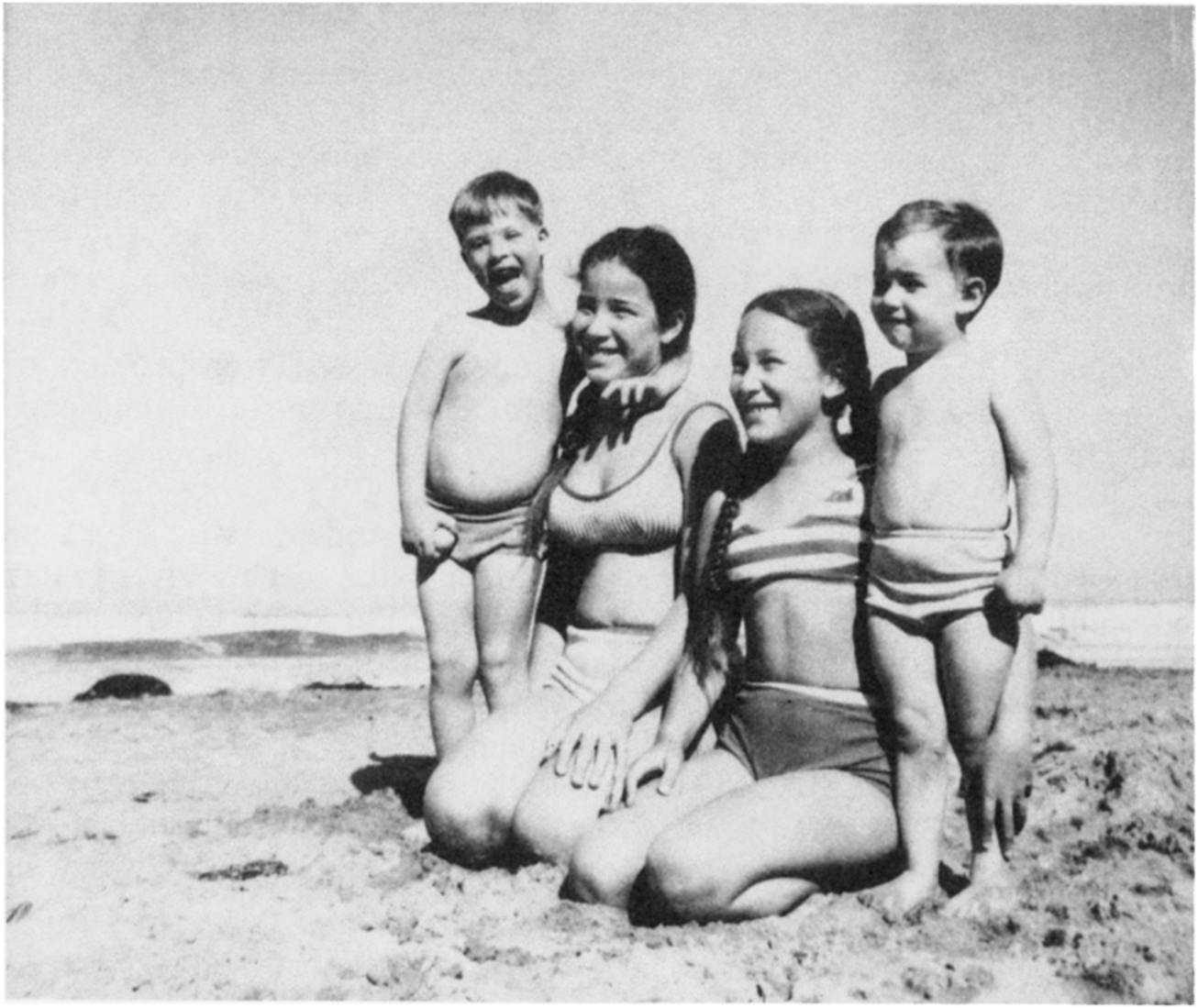
Rudin: I like that situation. I feel more comfortable and confident when I’m in the middle of things, and to do mathematics you have to feel comfortable and confident.
MP: It’s interesting that you now occupy a professorial chair honoring the English mathematician Grace Chisholm Young. She was a woman with six children, I believe. Do you happen to know if she operated the same way?
Rudin: I think she must have, basically. Let me get you some things about her from her son, L. C. Young, who is in Madison. You will love them. There’s a letter written to her by her husband, who was the mathematician W. H. Young, saying, “Mine the glory now and the knowledge. Yours the knowledge only. But later, when all the loaves and fishes are in, you will get your glory.” Something like that.
MP: A woman mathematician needs a very special man for a husband.
Rudin: Right. Right. Right.
MP: You mentioned earlier that during your college years your social friends were not mathematicians. Now who are your friends?
Rudin: They’re more mathematicians now, and the reason is that mathematics in Madison is a very large thing. It includes all kinds of people so it’s easier for Walter and me to know mathematicians than to know anyone else. We have very close mathematical friends.
MP: Your mathematical family.
Rudin: Yes. We have both had lots of graduate students so now we have students and students of students. We’re as close to our grandchildren — mathematical grandchildren — as we are to our students. Then we’ve both had very strong mathematical families behind us. I’ve described the Moore family to you. And Walter also has worked with a special group of mathematicians in France, Sweden, and the U.S. It includes a whole group of people from The University of Chicago who were students of Zygmund’s. This group has been a very strong mathematical family for Walter. We recently went to Yugoslavia for a month, and every place we went we were tremendously welcomed and very well taken care of by members of our mathematical families who are there.
MP: What vocations have your children followed?
Rudin: Our oldest daughter is a linguist. She is an expert on syntax, Bulgarian syntax in particular, but she knows many other languages — south Slavic languages are her specialty. She’s married to an anthropologist. Our second daughter is an engineer. She got an undergraduate degree in physics. She works for 3M in Minneapolis and is married to a computer scientist and engineer. Our youngest son is going to be a biochemist and an M.D. He’s still in school. And our retarded son is the janitor for the local pizza parlor. Walter says he’s our greatest success. He’s living way beyond his intelligence while the others are just living up to theirs! I claim that all these kids have inherited the family talent. They’re all mathematicians of a sort.
MP: Wait a minute now.
Rudin: How does mathematical talent show itself? It’s in pattern recognition. And the linguist daughter, the engineering daughter, the geneticist — it’s obvious with them. But even our retarded son has a tremendous amount of this ability. He doesn’t have very good judgment, but he has certain specialized talents which seem to me to be very much of the pattern recognition type. He loves history. He can tell you what happened on certain dates. He doesn’t know what the facts mean, but he likes to fit them together. He also knows the bus system in Madison absolutely perfectly. If you want to go from anywhere to anywhere at a certain time, he can tell you when the bus will come and where it will go.
MP: When you are at a party with a lot of people who are not mathematicians, and people ask what you do, what do you say?
Rudin: I say, “I’m a mathematician.” And then they tell me that mathematics was their worst subject and they need me to help them balance their checkbooks. The same thing they would tell a male mathematician.
MP: Why do you think that there are not more women in mathematics?
Rudin: Well, it isn’t clear to me. I recently talked to some high school students on “What is mathematics?” and, among other things, I talked about that very question. Mathematics is obviously something that women should be able to do very well. It’s very intuitive. You don’t need a lot of machinery, and you don’t need a lot of physical strength. You just need stamina, and women often have a great deal of stamina. So why do not more women become mathematicians? These were high school kids, and I gave them the statistics. When they start out as first graders, the girls are actually a little ahead of the boys because they read better. We know that this is genetic, and we don’t worry about it. At the end of elementary school, the girls say that they don’t do mathematics very well and the boys say that they do, even though there’s evidence to the contrary. At that point girls and boys are approximately the same except for their attitude toward the subject. But then when they get to high school, things change. At Wisconsin we send out to the high school students in the state some really wonderful problems that the math department has worked very hard to develop. These are problems that don’t require special knowledge — they just require talent and hard work. We send them around to the high schools in the state and tell the students if they are willing to look at these problems and send us their solutions, we’ll grade them and we’ll start communicating directly with them, giving them more problems.
MP: So you’re developing a talent bank?
Rudin: That’s right. It’s called the Talent Search. It was started by Grace Chisholm Young’s son. But the point of my story is that we almost never get any high school girls to respond. They won’t do the hard problems. They’re performing better than the boys at that point. But why won’t they look at the hard problems?
MP: Do you have any ideas?
Rudin: I really don’t. It must be something. There are people at Johns Hopkins who say that it’s genetic. Maybe it is, but I really don’t believe it. I think that for some reason, probably sociological, girls are refusing to look — they just simply won’t try something that they view as a hard problem in mathematics. But boys for some reason are willing and eager to look at the hard problems. We’ll get forty kids from the state to come to the university at the end of the year, and we’re very lucky if there are two girls among them. Now at the university some girls do begin to get really interested in mathematics, and by the time they get to graduate school some are very good — actually a fairly substantial group of them. They seem to recover later, but it’s very weird at the high school level.
MP: You’ve said that doing mathematics is different for women today than it was for you. Probably not as good?
Rudin: Oh, I don’t know that it’s not as good. In fact, I think that maybe it’s better for the following reason. If you do something professionally, it’s harder for you to quit. You stay with it in hard times. The young women today are much more professional. We were amateurs. We were enthusiastic amateurs, but we were amateurs. I’m of the housewives’ generation. We did what we did because we loved it. And some of us were lucky. For us things worked out, and we did very well. Some were not so lucky, and they just dropped out along the way. But the young women mathematicians today are thinking in terms of a career from the beginning. It’s true that they want a full-time job. They want to do all the research in the world. They want to have a husband and children. They want to have a home. We wanted everything too — in spades — but the one thing we didn’t demand, in fact it never occurred to us, was a career. The fact that they are thinking in terms of a career means that when it’s a question of washing the socks or doing mathematics, they will often do mathematics. I think it was easier to quit doing mathematics in our day.
MP: But you didn’t quit.
Rudin: No. I had the enthusiasm to do it. Julia Robinson certainly didn’t quit. But there were those who did. I think we’re getting a lot better young women mathematicians now than in my day.
MP: Certainly a lot more.
Rudin: I think that if you get a lot more you’ll get more that are better. I think that’s happening. And that’s really very satisfying to me. I see it coming.
July 1986 in Oakland, California.